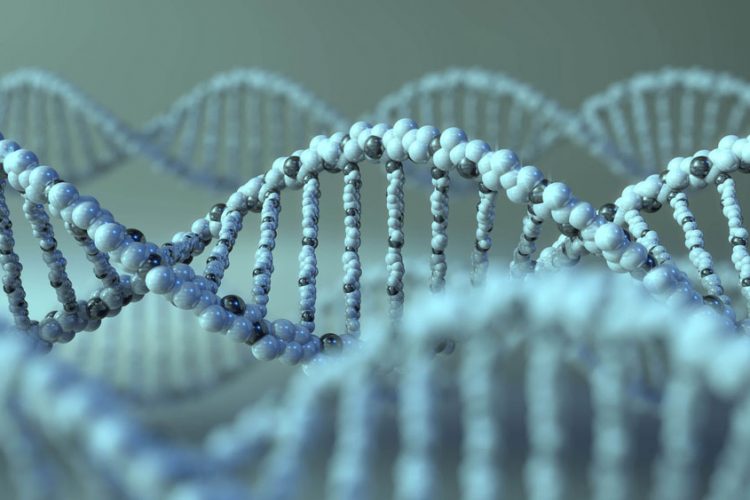Enzyme replacement therapy to treat alpha-mannosidosis
Posted: 29 January 2018 | Dr Zara Kassam (European Pharmaceutical Review) | No comments yet
The EMA has recommended granting a marketing authorisation in the EU for Lamzede a long-term enzyme replacement therapy for alpha-mannosidosis…


The European Medicines Agency’s (EMA) Committee for Medicinal Products for Human Use (CHMP) has recommended granting a marketing authorisation in the European Union (EU) for Lamzede (velmanase alfa), a long-term enzyme replacement therapy in adults, adolescents and children with mild to moderate forms of alpha-mannosidosis.
Lamzede is a recombinant human alpha-mannosidase developed as an intravenous enzyme replacement therapy (ERT) for the treatment of alpha-mannosidosis. The objective of the treatment is to administer the medicine into the bloodstream in order to replace the function of the deficient enzyme in the body. The ERT aims to normalise oligosaccharide levels in the body, to prevent progression of the disease and formation of abnormalities, as well as to improve a patient’s condition. However, Lamzede does not cross the blood-brain-barrier and is thus not expected to have an effect on the neurological aspects of the disease, which is also reflected in the indication.
The benefits of Lamzede were assessed in a multi-centre, double-blind, randomised, placebo-controlled, parallel group trial involving 25 patients. The benefits observed in patients after 52 weeks of treatment included a decrease of serum oligosaccharide to normal levels, improvement in exercise capacity and pulmonary function is some patients. The most common side effects were diarrhoea, fever and weight increase.
The observation period of one year is not considered sufficient to fully characterise the magnitude of the changes. As alpha-mannosidosis is a very rare disease, the CHMP agreed that it is not possible to provide comprehensive data on the efficacy and safety under normal conditions of use. Therefore the Committee recommended granting a marketing authorisation under exceptional circumstances and requested the applicant to complete an open-label study to further characterise the efficacy in patients under six years of age and develop an alpha-mannosidosis disease registry, to evaluate long-term effectiveness and safety of the treatment.
A marketing authorisation under exceptional circumstances allows patients access to medicines that cannot be approved using a standard authorisation route as comprehensive data cannot be obtained, either because there are only very few patients with the disease, the collection of complete information on the efficacy and safety of the medicine would be unethical, or there are gaps in the scientific knowledge. These medicines are subject to specific post-authorisation obligations and monitoring.
Because alpha-mannosidosis is a very rare disease, Lamzede was granted an orphan designation. At the time of approval, this orphan designation will now be reviewed by EMA’s Committee for Orphan Medicinal Products (COMP) to determine whether the information available to date allows maintaining Lamzede’s orphan status and granting this medicine ten years of market exclusivity.
The opinion adopted by the CHMP is an intermediate step on Lamzede’s path to patient access. The CHMP opinion will now be sent to the European Commission for the adoption of a decision on an EU-wide marketing authorisation. Once a marketing authorisation has been granted, decisions about price and reimbursement will take place at the level of each Member State, taking into account the potential role/use of this medicine in the context of the national health system of that country.
What is Alpha-mannosidosis?
Alpha-mannosidosis is a rare inherited enzyme disorder that causes cell damage through the build-up of mannose-rich oligosaccharides in many organs and tissues of the body. Patients affected by the disease may have intellectual disability, liver or spleen enlargement, distinctive facial features and skeletal abnormalities. The symptoms of alpha-mannosidosis range from mild to moderate and severe. Individuals with early onset severe and rapid progressive disease often do not survive beyond childhood, whereas those affected with the milder forms of the disease survive into adult life. Alpha-mannosidosis is a rare disease estimated to occur in approximately 1 in 500,000 to 1 in 1,000,000 people worldwide.
There is currently no cure for this disease. Patients with the less severe forms of the disease are managed with supportive care including symptom management, medical and surgical treatment of complications and physical therapy.
Related topics
Related organisations
Committee for Medicinal Products for Human Use (CHMP), European Medicines Agency’s (EMA), European Union (EU), Orphan Medicinal Products (COMP)









